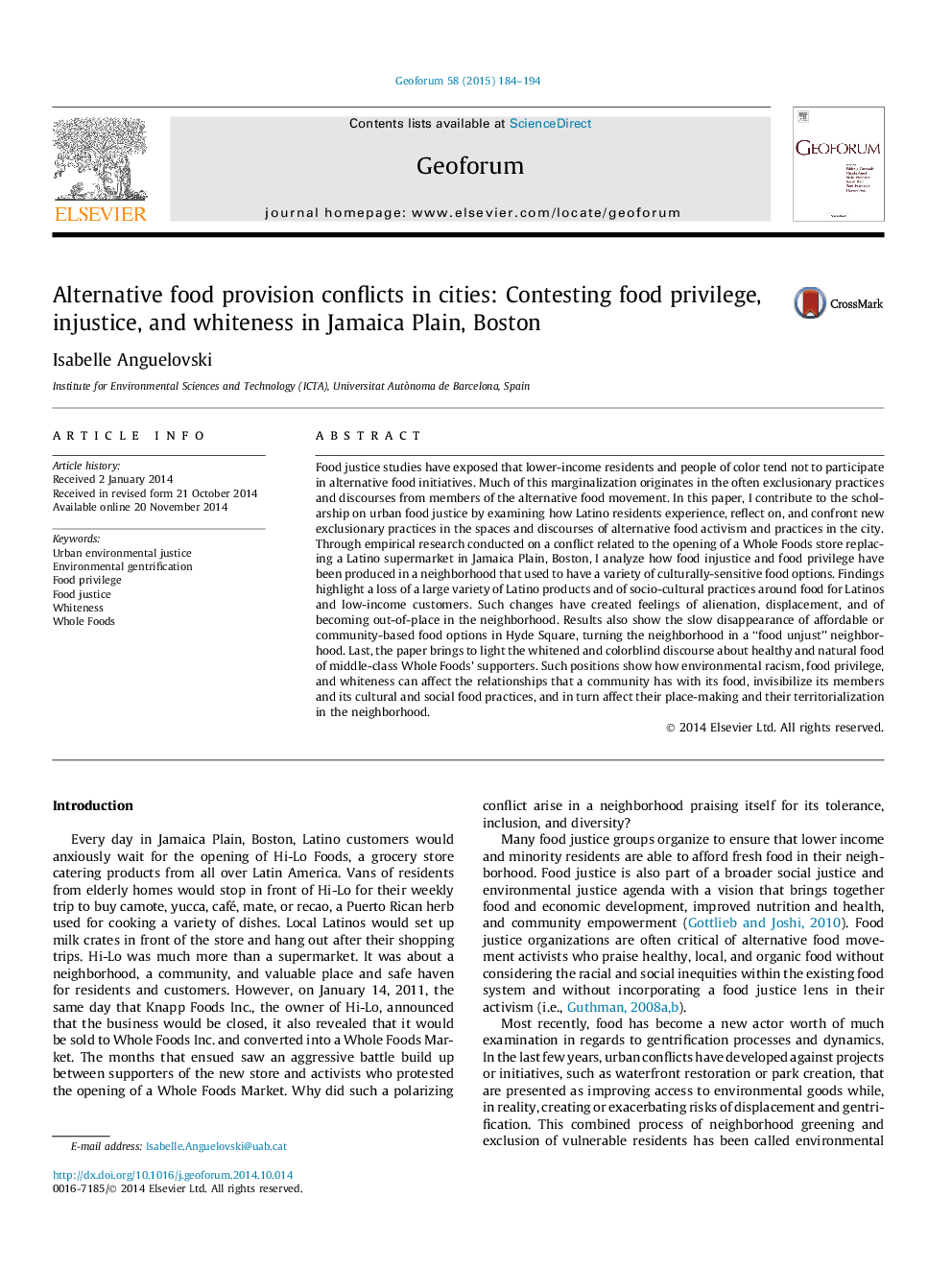| Article ID | Journal | Published Year | Pages | File Type |
|---|---|---|---|---|
| 5073863 | Geoforum | 2015 | 11 Pages |
â¢The closing of Latino food stores creates feelings of displacement and fear of erasure.â¢The closing eliminates most affordable Latino food options in the neighborhood.â¢Whole Foods' opening signified the loss of a socio-cultural food haven for Latinos.â¢Environmental privilege affects the relationships that a community has with its food.â¢Environmental racism invisiblizes the healthy food practices of marginalized groups.
Food justice studies have exposed that lower-income residents and people of color tend not to participate in alternative food initiatives. Much of this marginalization originates in the often exclusionary practices and discourses from members of the alternative food movement. In this paper, I contribute to the scholarship on urban food justice by examining how Latino residents experience, reflect on, and confront new exclusionary practices in the spaces and discourses of alternative food activism and practices in the city. Through empirical research conducted on a conflict related to the opening of a Whole Foods store replacing a Latino supermarket in Jamaica Plain, Boston, I analyze how food injustice and food privilege have been produced in a neighborhood that used to have a variety of culturally-sensitive food options. Findings highlight a loss of a large variety of Latino products and of socio-cultural practices around food for Latinos and low-income customers. Such changes have created feelings of alienation, displacement, and of becoming out-of-place in the neighborhood. Results also show the slow disappearance of affordable or community-based food options in Hyde Square, turning the neighborhood in a “food unjust” neighborhood. Last, the paper brings to light the whitened and colorblind discourse about healthy and natural food of middle-class Whole Foods' supporters. Such positions show how environmental racism, food privilege, and whiteness can affect the relationships that a community has with its food, invisibilize its members and its cultural and social food practices, and in turn affect their place-making and their territorialization in the neighborhood.
